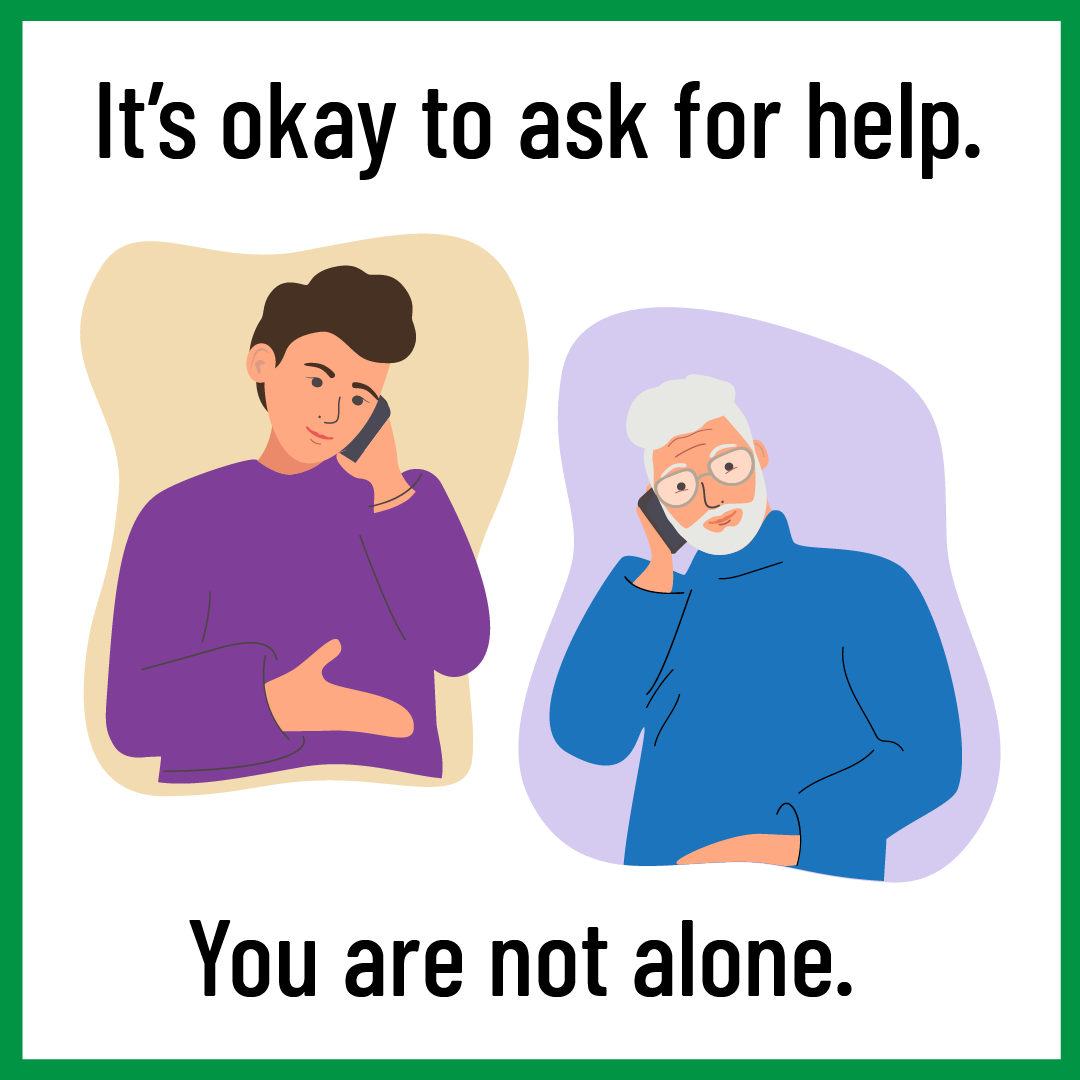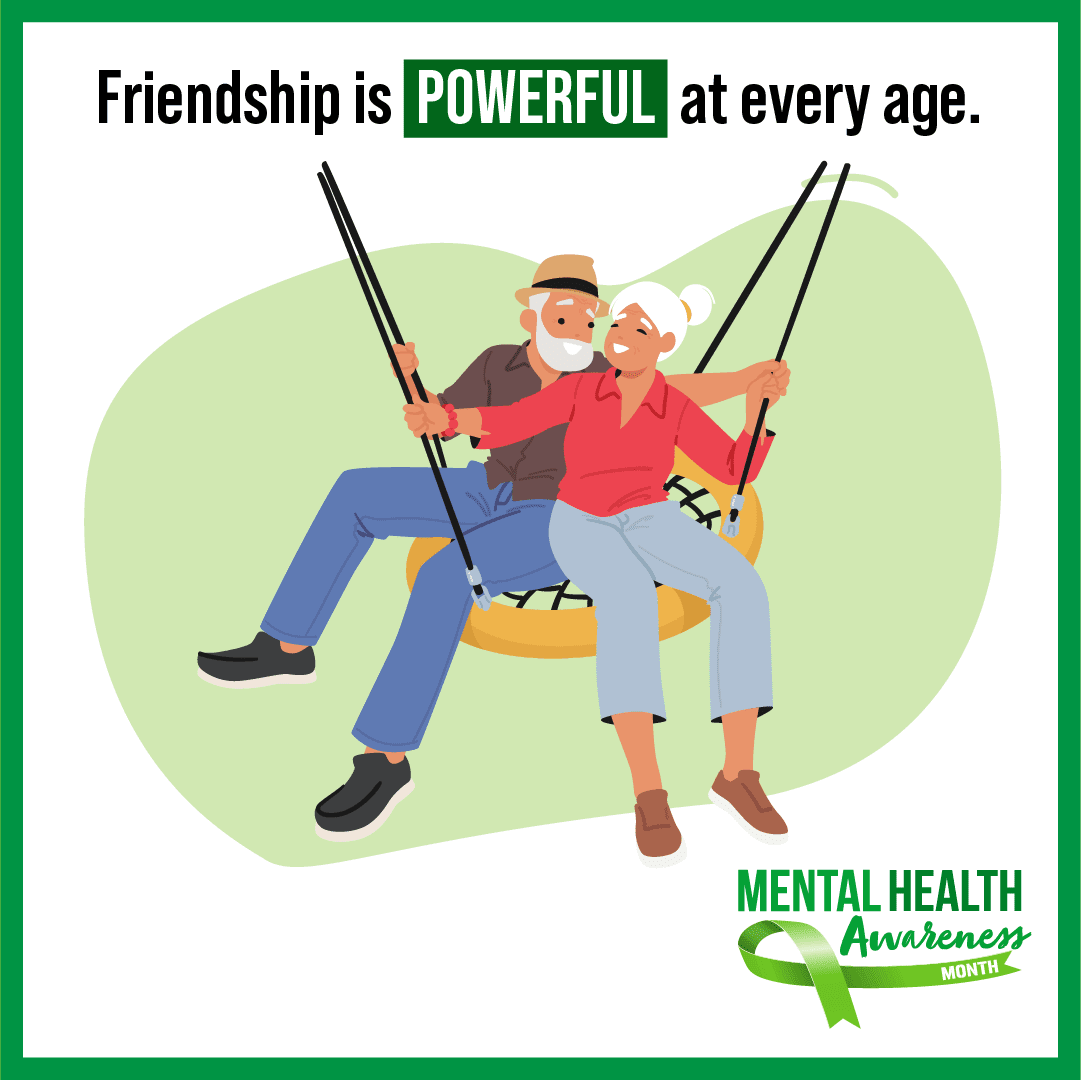Prioritizing Mental Health for Our Aging Population
As we celebrate Mental Health Awareness Month this May, it's essential to highlight a significant theme dedicated to the mental health of older adults within our aging population. With SAMHSA promoting this awareness initiative, the focus this week is on addressing the mental well-being of seniors. This blog post aligns with that theme and includes images provided by SAMHSA to enhance our understanding and support for this vital issue.
As Mental Health Awareness Month begins, we’re invited to focus on an often-overlooked topic: the mental health of older adults. From May 1–3, the national theme encourages us to reflect on how we can support the emotional well-being of our aging population—a group that continues to grow thanks to advancements in medicine and quality of life. But living longer doesn’t always mean living better, especially when mental health needs go unmet.
The Silent Struggles of Aging
Older adults face unique challenges that can significantly impact their mental health. Retirement, reduced income, chronic health conditions, loss of independence, grief, and social isolation are common issues that, over time, can lead to depression, anxiety, or even cognitive decline. According to the National Institute of Mental Health (NIMH), nearly one in five adults aged 60 and older experience some form of mental or neurological disorder—yet many go undiagnosed or untreated.
Unfortunately, symptoms of mental health conditions in older adults are often misattributed to "normal aging." Fatigue, changes in appetite, loss of interest in hobbies, or withdrawal from social activities may be signs of a deeper issue—not just "slowing down."
Reducing Stigma and Fostering Connection
Stigma and generational beliefs about mental health can discourage older adults from seeking help. Many were raised during a time when discussing emotional struggles was taboo or seen as a sign of weakness. That’s why normalizing mental health conversations and actively inviting older adults into these discussions is so crucial.
According to the Substance Abuse and Mental Health Services Administration (SAMHSA), encouraging connection and inclusion helps reduce isolation and improves overall well-being. Small gestures like calling regularly, inviting them to social gatherings, or assisting them with transportation to community events or healthcare appointments can have a profound impact.
How Counseling Can Help
Counseling and therapy can play a vital role in enhancing quality of life for older adults. Research shows that psychotherapy is as effective for older adults as it is for younger populations. Cognitive-behavioral therapy (CBT), mindfulness-based interventions, and life review therapy are all evidence-based approaches that can address depression, anxiety, grief, and age-related adjustment issues (American Psychological Association, 2014).
For those facing cognitive challenges, therapy can be adapted to focus on emotional regulation, routine structuring, and caregiver support. Moreover, family therapy can help caregivers understand the emotional needs of their aging loved ones and support them more effectively.
Tips to Support Older Adults in Your Life
If you have an older adult in your life—a parent, neighbor, or friend—here are some ways to support their mental health:
Check in regularly: A phone call or visit can provide comfort and reduce feelings of isolation.
Encourage physical activity: Gentle exercise like walking or chair yoga can improve mood and cognitive function.
Promote social engagement: Help them find local senior centers, hobby groups, or volunteer opportunities.
Watch for changes: Be aware of shifts in mood, appetite, or behavior that may indicate emotional distress.
Help them access care: Offer to help with transportation, appointments, or navigating insurance or Medicare.
You're Not Alone—And Neither Are They
If you or someone you care about is struggling with mental health concerns related to aging, support is available. Seeking help is a sign of strength, not weakness. As a counseling practice, we are here to provide compassionate, evidence-based care to individuals across the lifespan—including our beloved older adults.
Let’s honor their wisdom, respect their struggles, and uplift their voices by making mental health care a priority at every age.
Resources:
SAMHSA: www.samhsa.gov
National Institute of Mental Health (NIMH): www.nimh.nih.gov
American Psychological Association – Aging & Mental Health: www.apa.org/pi/aging
National Council on Aging (NCOA):www.ncoa.org




